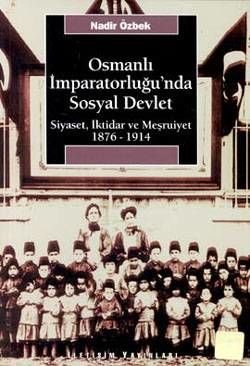
Social State in the Ottoman Empire
In recent years, the crisis of the welfare state and the problem of poverty have occupied an important place on the world agenda. Welfare regime, social state, social policy, social aid etc. concepts are discussed again with a broader historical perspective. In Ottoman historiography, studies that focus on these issues and are mostly monographic in nature suffer from a lack of theoretical and conceptual perspective. Nadir Özbek's study on the social state of the period of Abdulhamid II and the Second Constitutional Monarchy fills an important gap in this sense. Evaluating the late Ottoman welfare system within the framework of the formation of the modern state, Özbek thus integrates the reign of Abdulhamid and the Second Constitutional Monarchy within a single paradigm. The author puts the difference between these two periods in terms of whether the welfare systems were monarchical or bureaucratic-secular. The monarchical welfare system of the Abdulhamid period was designed to create a sense of belonging to a large paternal family, symbolized by the personality of the sultan, and loyalty to the head of this family. However, the welfare system of the Constitutional Monarchy period, the backbone of which was formed by poor societies and semi-official societies, was based on strengthening the idea of loyalty and obedience to the state and homeland. Özbek discusses the formation process of the social state in the Ottoman Empire by subjecting the information he compiled from a comprehensive archive and literature study to an analytical filter.
Number of Pages: 380
Year of Printing: 2008
Language: Turkish
Publisher: Iletisim Publishing
Number of Pages: 380
First Printing Year: 2002
Language Turkish
| Publisher | : | Contact Publishing |
| Number of pages | : | 380 |
| ISBN | : | 9789750500718 |
| The heart | : | Turkish |


